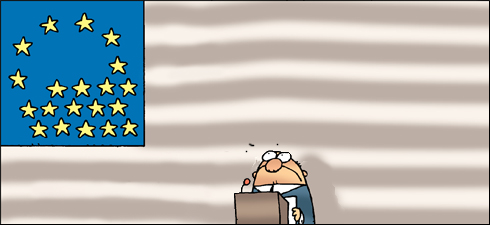Alfred Heineken did more than just brew beer. He also thought about things, like the future of Europe and how best to proceed.
"I propose a United Europe of 75 states," he wrote in a pamphlet published in the summer of 1992, "each with a population of five to 10 million inhabitants."
Heineken, a creative old man with a lot of time and money on his hands, was famous for having wacky ideas. And the one about Europe was quickly forgotten.
Alas. Because 20 years later, it is more relevant than ever.
It has been said before, but never was it truer than today: European states are too small for international affairs and too big for everyday life.
The time is long gone when Germany or France was able to fend for itself on the global stage, let alone Luxembourg or the Netherlands. That is why today, there is Nato, the EU, and – for the time being – a single currency.
Interesting article?
It was made possible by Voxeurop’s community. High-quality reporting and translation comes at a cost. To continue producing independent journalism, we need your support.
Take a look at the list of the biggest countries in the world in physical terms.
The EU's highest ranking member state, France, is number 43. Russia, the undisputed number one, is more than 26 times as big. Both China and the US are 15 times as big.
Now look at the list of countries by population size. Germany, the EU's most populous, is number 16. China, the world's most populous, has more than 16 times as many inhabitants. India has close to 15 times as many.
If the EU was considered a country, it would be seventh on the list of biggest countries and third on the list by population size. And, as officials in Brussels never tire of repeating, first on the list of biggest economies.












